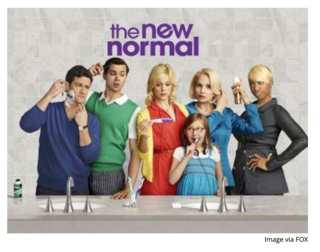Marriage
Would You Live with Your Spouse After Splitting Up?
Couples are changing all the rules of marriage and divorce. Find out how.
Posted August 7, 2019
- Yvette and Leroy were both doctors and, as such, gave to others all day long. When they got home from work in the evening, they continued to give by caring for their two kids, trading off cooking or cleaning up, bath time, or bedtime story reading. By the time they crawled into bed each night, they were spent and had nothing left to give. That's the main reason they believe their relationship suffered. They agreed that, for all intents and purposes, the marriage they once enjoyed had gone by the wayside.
Although the physical aspect of the marriage had disappeared, everything else about their marriage — their friendship and respect for each other, their finances, extended family and their social circles — worked. Both agreed that they didn't want to disrupt the kids' worlds by living in two separate homes. They decided to put off the decision to divorce and keep everything as it was until the kids were older, or one or both of them wanted to get into a new relationship.
- Alexander and Marco were just about to divorce in 2009, after Marco decided he wanted out, when the Recession hit them big time. Before the men could file papers with the court, the market tanked: Their house was upside down and their portfolio was a fraction of what it had been a few years earlier. The men had a little bit of savings but not enough to maintain two households—especially now that their kids had reached high school.
Although they wanted to go through the formalities of a legal divorce and move on with their separate lives, they simply couldn't. They had to hunker down during the financial storm and reassess when the economy calmed down.
- Bob and Tracy were jokingly called "The Bickersons" by friends. The truth is, they fought mercilessly from the first day their oldest child came home from the hospital. Caught in a constant power struggle over who knew best how to care for the kids, this couple was never able to find a peaceful co-existence. They stayed together in this state for eight years but ultimately split up.
If their marriage was tumultuous, their divorce was a nightmare. It drained them of all their assets. By the time all the paperwork was finalized, there was emotional relief, but the financial strain was unsustainable. Something had to give, and that something was the ability to live apart. After the divorce was finalized, they agreed they had no choice but to cohabit once again.
Different Stories, Same Outcome
Three distinct paths brought each of these couples to the end of their marriages as they knew them, but what they had in common is where they ended up—each of these three pairs continued to live together even after acknowledging that their marriages had expired. In two of the three cases, finances kept them tied; in the other, the primary motivator was not wanting to create upheaval for the kids.
Normally, when people break up, we assume that they will go their separate ways. When they don't, we see it as strange or wrong somehow. But should we, given that it is becoming increasingly common?
The 2008 recession was a game-changer for many couples because they didn't have the means to pay for a divorce and still fund two households. Rather than labeling those who choose this path as wrong, it became the impetus for my designing what I call a Parenting Marriage.
In the 12 years since developing this concept, I have seen an increase in the number of couples choosing to remain in one house despite being technically (or even legally) broken up. Although the scales have not yet tipped to the point of accepting this alternative family structure on a larger scale, I believe, based on what I'm seeing in the media, that we are almost there.
If It's on TV or in the Movies, Does That Make It Okay?
Everybody is influenced by their environment, whether they know it or not. Our most powerful source of influence is the media—in particular, TV and film. Hollywood is often a big part of what determines our cultural norms, regardless of whether the norm is set by a fictitious role a famous actor (or director, producer, etc) is portraying, or whether it's a famous actor's real-life unfolding.
For example, Gwyneth Paltrow and Chris Martin put "Conscious Uncoupling" on the map. Once they made their divorce process public, couples all over the world followed suit. The fairly recent fallout from the Harvey Weinstein debacle created the #MeToo Movement. And, many argue that our increasing tendencies toward violence can be blamed on the media. So it would make sense that Hollywood would help shape the family structure as well.
Forty to fifty years ago, shows like Ozzie and Harriet, Leave it To Beaver, and Father Knows Best portrayed happily married couples and/or families with very gendered and culturally stereotyped roles. Sitcoms like The Mary Tyler Moore Show and The Brady Bunch were among the first to enlighten audiences that single people and blended families were also acceptable alternatives to the "traditional family." Today, we have numerous sitcoms portraying how marriage and family have evolved to the point where the "modern family" has much more of an anything-goes flavor.

Which Came First, the Show or The Reality?
There's a constant dance between art imitating life and life inspiring art.
Reality shows like Jon and Kate Plus Eight, Sister Wives, and Keeping Up With the Kardashians are meant to give the viewer an inside perspective on how other people do family. It's a form of entertainment but it can also be a way to normalize or understand certain behaviors.
I've just learned of a reality show in the works that covers a topic related to, if not overlapping with, the Parenting Marriage concept. It is a show about couples that split up but continue to live together called Do Us Part.
Because I feel strongly that this topic needs to be represented more in the media, I am helping to get the word out. Here's the casting call:
Couples That Live Together After Divorce
Life’s complicated, and so is marriage. Sometimes when it’s over, it's not really over. Whether it’s actually easier to stay or too difficult to leave, some couples choose to continue living under ONE ROOF. There are many reasons why . . . Whatever the reason you and your ex decide to remain under one roof - from the simplest reason to the most bizarre - we want to hear how and why you’re navigating the relationship after divorce.
To be considered for this new series, please send your story along with photos and contact info to CouplesCasting@Eastern.tv
Why Expose Your Personal Story?
What we mistakenly call "traditional marriage" is not so traditional, it turns out.
We only started marrying for love en masse after the Industrial Revolution. Prior to that, marriage was much more utilitarian. It still is in many parts of the world. Yet, a purpose-based marriage makes much more sense, in fact, than a purely emotion-based union. As George Bernard Shaw said, "When two people are under the influence of the most violent, most insane, most delusive, and most transient of passions, they are required to swear that they will remain in that excited, abnormal, and exhausting condition continuously until death do them part.”
Being one of the first couples to go against the tide can be challenging and there will be no shortage of people telling you you're doing something wrong. But you're not.
The call to share your story is an important one. Sharing your story can do two things: Validate your own experience, and; help others find a solution that fits their needs.
Being in (or even just seeing) a TV show like Do Us Part can legitimize your choice to live together with your ex. Staying together without "being together" to provide stability for your kids or to preserve finances is an honorable option, provided it's not creating a soul sickness or dis-ease.
Because our culture has been marrying for love for the past two hundred years, it can be tough to change the tides. Shows like Splitting Up Together and Do Us Part help people see that there are many more options than they realized. It can provide each couple the freedom they need to create a relationship that works for them and not destroy the family's foundation in the process.
People have been doing their own thing for years, as Pamela Haag points out in her 2011 book, Marriage Confidential.
Perhaps the time has come to normalize and celebrate all kinds of unions and stop assuming that everyone will—or should—fit into the one-size-fits-all marriage model.
No part of this publication may be reproduced without the express written permission of the author. Failure to comply with these terms may expose you to legal action and damages for copyright infringement.




